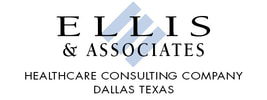THE BUSINESS OF MEDICINE FOR RESIDENTS, FELLOWS AND NPs: Interview Preparation for the “New Normal.”5/25/2020
In a blog earlier this month I addressed the issue of pandemic regret, i.e., not taking the time to seriously reflect on your practice or career in medicine and to reimagine a new way of practicing in the era of COVID. But what does this mean for residents, fellows and NPs beginning to look at options for a medical career after graduation?
As I noted in that blog, much of the practice of medicine is not going to change. The payers—government and managed care—are not going away. Although there is still a move to bundled payments for surgeries and other treatments, fee-for-service and RVU forms of reimbursement will be the norm for procedures for most medical specialties. Quality will be reimbursed in the form of bonuses/rewards. Patient satisfaction will be of the utmost importance. The evaluation of potential jobs and employers will require all of what is outlined in my platform, www.FirstMEDPractice.com. But there will be some new things to find out and analyze, especially if you are in primary care, IM or OB/Gyn. Here’s a short list. Telemedicine: Although telemed has been a huge success during the last few months of COVID, total visits have started to level off as the extent of what can be done has come into focus. The last number I saw indicated it was leveling off at about 40% of the primary care group. But it’s here to stay and should be discussion topic and evaluated when looking at any job opportunity. How much of your proforma is based on telemed? What are the requirements in your daily workload? Afterhours? What are the reimbursements like among managed care payers? How will telemed patients be followed up? Doctor visit? NP? Who will make sure medications are taken, review and evaluate tests, and get back to the patients with this information? How HIPPA compliant is the current telemed operation? And what do the state laws say about telemed and it’s future? And the biggest question: What happens to my proforma projections if Medicare decides not to continue reimbursing for telemed at the end of the crisis that brought about their decision to do so? What will managed care payers do? Asking this question, and its answer, will give you a very good indication of the kind of financial planning and leadership a prospective employer has in place: Have they planned for a change? Social Media: Is an absolutely must have. My clients are working with PatientPOP and DoctorLogic to help them integrate into Facebook, Instagram, etc. In fact, some are now working with branding agencies to help them establish their “brand” name even more quickly than the software platforms mentioned above. This has to be part of any employment relationship, no questions asked. If it’s not, be wary. Patient Scheduling/Flow: By now you’ve heard about the various ways practices are dealing with patient visits as a result of COVID, restricting the use of waiting rooms, etc. Be sure you completely understand their new normal here. How will this impact your ability to maximize visits? Also, ask what will be done with the waiting room if it proves obsolete; unused rental space is expensive and you will be apportioned it as part of practice costs. Capitation/Direct Primary Care: All traditional primary care practices have been hit hard by COVID. There is a recovery underway, and certainly a lot of pent-up patient demand, as well as great concern among the medical community that patients are foregoing necessary care now and will end up in emergency rooms or catch health issues before they become critical. There is talk among many experts that during this primary care crisis the government needs to step in and help primary care office stay open. Certainly, the US does not need to reduce the number of practicing primary care doctors. Some have suggested that to solve this problem we need to return to capitation, a model where primary care doctors are paid a monthly fee for each of their patients whether they see them or not. This is similar in some ways to direct primary care, where physicians align them selves with insurers under a similar capitated model; they also can contract with patients directly (in some ways DPC is very similar to concierge medicine, but the physicians have an office). Both fit the private practice model, although both take time to mature because you have to access new patients. I bring these up because if you are just starting out you will need some time to evolve your practice, and that will require your employer funding your practice for some time. Be sure to ask lots of questions about how your practice will grow and whether or not you will be responsible to repay any monies advanced for this purpose (i.e., they are a loan). The healthcare business and market is undergoing changes almost weekly. I’ll continue to provide analysis as it pertains to future employment issues. Stay tuned.—TOM ELLIS III 5/24/20. www.FirstMEDPractice.com Comments are closed.
|
I welcome your comments and thought. Please send to me at [email protected]Archives
May 2021
|
|
© 2023 Ellis and Associates
|

 RSS Feed
RSS Feed